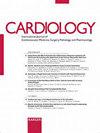Association of obstructive sleep apnea on heart failure and its risk factors: A two-step Mendelian randomization study.
IF 1.7
4区 医学
Q3 CARDIAC & CARDIOVASCULAR SYSTEMS
引用次数: 0
Abstract
BACKGROUND Recent studies have indicated that obstructive sleep apnea (OSA) is linked to a higher likelihood of heart failure (HF). However, the causal connection between the two conditions is uncertain. We aimed to investigate the causal association of OSA with HF and its risk factors. METHODS The OSA summary statistics are derived from the FinnGen database, including 38,998 cases and 336,659 controls. and HF summary statistics come from HERMES, the UK biobank, and the FinnGen database. A two-sample Mendelian randomization (MR) analysis was conducted to examine the causality of OSA on HF risk. Furthermore, the mediator effect of potential risk factors was assessed by a two-step MR. RESULTS The results of MR analysis demonstrated that genetically determined OSA is causal associated with the higher likelihood of HF (HERME: odds ratio [OR] = 1.222; 95% confidence interval [CI] [1.091, 1.369]; p = 5.19 × 10-4) (FinnGen: OR = 1.233; 95% CI [1.129, 1.346]; p = 3.32 × 10-6) (UK Biobank: OR = 1.002; 95% CI [1.000, 1.003]; p = 0.014). Two-step MR analysis indicated that obesity, blood glucose, depression, and other CVDs have significant mediating effects on the causal effect between OSA and HF. CONCLUSION This MR study emphasizes the causal effect of OSA on HF risk. Adiposity traits play a major role in the process of OSA leading to HF. Considering the detrimental impact of OSA on HF, it becomes imperative to prioritize the prevention and management of HF in individuals afflicted with OSA. The foremost intervention strategy should revolve around effective obesity management.阻塞性睡眠呼吸暂停与心力衰竭及其风险因素的关系:孟德尔随机两步法研究
背景最近的研究表明,阻塞性睡眠呼吸暂停(OSA)与较高的心力衰竭(HF)可能性有关。然而,这两种情况之间的因果关系尚不确定。我们的目的是研究 OSA 与 HF 及其风险因素之间的因果关系。方法:OSA 的简要统计数据来自芬兰基因数据库,其中包括 38,998 例病例和 336,659 例对照,HF 的简要统计数据来自 HERMES、英国生物库和芬兰基因数据库。我们进行了双样本孟德尔随机化(MR)分析,以检验 OSA 与高血压风险的因果关系。结果MR分析的结果表明,由基因决定的OSA与较高的HF可能性有因果关系(HERME:比值比 [OR] = 1.222; 95% confidence interval [CI] [1.091, 1.369]; p = 5.19 × 10-4)(FinnGen:OR = 1.233; 95% CI [1.129, 1.346]; p = 3.32 × 10-6)(UK Biobank:OR = 1.002; 95% CI [1.000, 1.003]; p = 0.014)。两步磁共振分析表明,肥胖、血糖、抑郁和其他心血管疾病对 OSA 和 HF 之间的因果效应有显著的中介作用。肥胖特征在 OSA 导致高血压的过程中发挥了重要作用。考虑到 OSA 对高血压的不利影响,当务之急是优先预防和管理 OSA 患者的高血压。首要的干预策略应围绕有效控制肥胖展开。
本文章由计算机程序翻译,如有差异,请以英文原文为准。
求助全文
约1分钟内获得全文
求助全文
来源期刊

Cardiology
医学-心血管系统
CiteScore
3.40
自引率
5.30%
发文量
56
审稿时长
1.5 months
期刊介绍:
''Cardiology'' features first reports on original clinical, preclinical and fundamental research as well as ''Novel Insights from Clinical Experience'' and topical comprehensive reviews in selected areas of cardiovascular disease. ''Editorial Comments'' provide a critical but positive evaluation of a recent article. Papers not only describe but offer critical appraisals of new developments in non-invasive and invasive diagnostic methods and in pharmacologic, nutritional and mechanical/surgical therapies. Readers are thus kept informed of current strategies in the prevention, recognition and treatment of heart disease. Special sections in a variety of subspecialty areas reinforce the journal''s value as a complete record of recent progress for all cardiologists, internists, cardiac surgeons, clinical physiologists, pharmacologists and professionals in other areas of medicine interested in current activity in cardiovascular diseases.
 求助内容:
求助内容: 应助结果提醒方式:
应助结果提醒方式:


